
Minister
In post-WWII Communist Czechoslovakia, several characters considered bourgeois are sentenced to work in a junkyard for rehabilitation. Among them is a young man who pines for a female convict.

Senior director

Tomeš
A remake of Vávra's 1948 atomic age thriller Krakatit.

Host
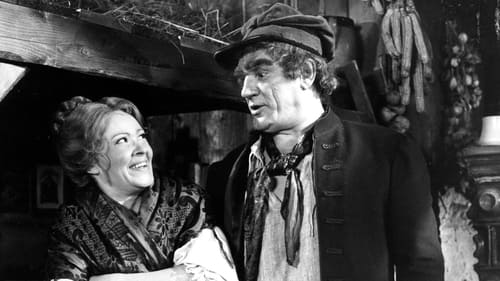
kníže Belzebub

akademik Tronícek
Three Men Travelling is billed as a loosely related sequel to Tri chlapi v chalupe (1963), sending our country protagonists set out from their family nests in the village of Ouplavice into the big wide world. Grandpa Potucek, (Lubomír Lipský) and his son Václav (Jan Skopecek) take part in the cooperative's excursion to spa town Karlovy Vary, a Pilsen brewery and some agricultural enterprises in western Bohemia. During the course of a series of misunderstandings and merrymaking, grandfather Potucek decides he will not let problems with sick calves unsettle him, and that he will persevere in his role as the leader of the cooperative.

Professor
Sixteen-year-old students of a grammar school are supposed to write essays on "Love". The class best student Andrea (Jaroslava Schallerová) writes about a patriotic love to a country as she has no experience with a partner love. She has been living alone with her divorced pretty mother Eva (Milena Dvorská), a dentist, for many years. Recently, however, Eva met her former school-days love at a graduates' party, nowadays a famous hockey goalkeeper Brukner (Frantisek Velecký). Also his marriage fell apart; he leaves the national team and decides to leave Prague for his home town and to share flat with Eva. He takes with him his son Petr (Oldrich Kaiser), in Andrea's age, who gets his last chance to finish a grammar school in the town.
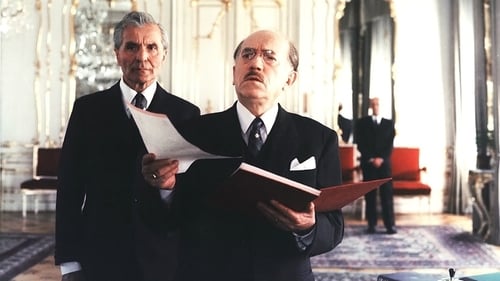
This feature film based on the events of 1938 is a chronicle of the futile efforts of the Czechoslovak president Edvard Benes (Jirí Pleskot), politicians and ordinary citizens, to save the independence and the territorial integrity of the state from the advance of Hitler's Germany. On the 29th of March 1938 the leader of the Sudeten Germans Henlein (Werner Ehrlicher) has a meeting with Hitler (Gunnar Möller). Hitler orders him to intensify pressure on the Czechoslovak government. On the 24th of April in Carlsbad, the Sudetendeutsche Partei (Sudeten German Party) decides upon eight demands that are unacceptable to the Czechoslovak President, since they would ultimately lead to the break-up of the Republic. Benes still shows a certain willingness to negotiate, and Henlein resents this. The Germans are determined to make further negotiations impossible through incidents and violence.


The life of the famous French writer Alexander Dumas the Elder. Screenwriter Jaroslav Dietl did not hide his admiration for this literary giant, and in addition to the screenplay he also wrote a three-part TV play about Dumas (starring Vladimír Menšík). In Kachyn's film, Dumas played the father and son of the Štěpánková brothers, and it was a very difficult and difficult task for these young actors.
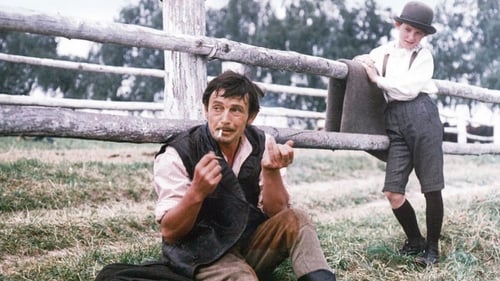
Ambrož
This Czechoslovakian children’s film takes place during the last days of the Austro-Hungarian empire. The young son of a horse trainer loves nothing more than riding his horse, until he is stricken by polio…

Boblig
A ruthless inquisitor spins the superstitions of local peasants into religious heresy, finding cause to accuse dozens of innocent men and women of witchcraft. The inquisitor targets nobles and merchants, whose property and goods are then confiscated. After suffering an array of medieval tortures, most of the accused confess—only to be burned alive at the stake as helpless villagers watch. With its bold and striking cinematography, the film captures scenes of both daring nudity and brutal torture.

When a noted professor receives a new treatment for his heart ailment, his outlook on life changes. Despite doctor's orders, he is determined to live out his final days on his own terms and fulfill his fantasies. He saves the life of a young woman who tries to kill herself after his recovery from heart surgery in this symbolic story of a man trying to determine his own fate in his last days alive.

Profesor
An artist's studio is descended upon by a group of retired men and a young mother who agree to model in the nude for money. Comedy ensues as the students and the local bureaucracy react to the models, all in need of extra money. Several running gags border on slapstick as the officials and the students don't know what to do with the nude models.


Agent's Chief (voice)
The invincible agent Cyril Juan Borguette alias W4C has been assigned a mission to go to a hotel in Prague, get hold of a saltcellar with a plan for the military exploitation of Venus hidden in it, and hand it over to the beautiful agent Alice. He will have to compete for the saltcellar with other agents working for the world's various greater and smaller powers. The head of the Prague counter-intelligence unit gets news of agent W4C's mission. Deficient in personnel, he nominates accountant Foustka as agent 13B. Mr Foustka takes his dog Pajda with him and the two head for the airport. Pajda helps him track down agent W4C in a classy hotel that becomes the battleground for the interests and plans of the secret agents from different countries, each trying to get hold of the precious saltcellar.


Blech
A gifted poet checks into a Gothic hotel in hopes of meeting the woman with whom he has long been enamored. He is surrounded by a variety of offbeat characters like the hefty homosexual cook, shadowy clerks, snooty waiters, and valets prone to violence. He finally meets the woman of his dreams only to lose her and ultimately meet with tragedy.

vysoký zmocněnec
Honza Vavrinec (Rudolf Hrusínský) works in the investment department of a large office. One day he gets involved in the case of an unjustly convicted worker who mistakenly considers him a parliamentary deputy. Honza as a "deputy" interferes in the case and helps the worker. Encouraged by the success and possibly also out of love for the beautiful secretary Svatava (Blanka Bohdanová), the then shy and fearful Honza stands up for the chief of the department, Hofmánek (Ladislav Pesek), who has been removed from his position.


Michal's father and his friends are stigmatized by their war experience and the post-war social deformations in which they took part either directly, or watched them cowardly and in silence. They are trying to repress their feelings of guilt and justify their behavior to the young generation with memories of their heroic war feats. Michal, however, does not want to have anything to do with their problems. He subconsciously perceives the unpleasant atmosphere in the family as well as his father's hypocrisy. After one of many quarrels with his father, he runs away from home, determined to go his own way.

Professor

sběratel MUDr. Vitásek

Farár

Commentary (voice)

Commentary (voice)

Commentary (voice)

Zdeněk Kružný

Commentary (voice)

Commentary (voice)

Kroupa
A fiction piece centered around the Czech resistance to the Nazis.

Painter Roman
People are afraid of the usurer Chazaj and are convinced that he is the bearer of evil. One day Chazaj pays a visit to the poor artist Simon Jordán and asks him to paint his portrait. Simon agrees but as he progresses with the work his mind conjures up terrible thoughts and in the end he commits suicide. The portrait looks lifelike and Chazaj is content with the results. After Chazaj's death the picture changes hands and brings misfortune to all who own it. The last victim is the young painter Roman who buys Chazaj's portrait in a bazaar. He finds a treasure in the frame and begins to live well off it. The comfortable life suits him so well that he rejects his original artistic aims and becomes a painter of fashionable kitsch.

Commentary (voice)

Ferdinand Kugler
Five crime stories connected by the narration of police superintendent Bartosek.

At the end of the First World War, Nikola Shuhai and his friend from the army desert. On the way home, to the village of Kolochava, they both find refuge with baby Jaga. Jaga mixes them a drink to protect them from the deadly bullets. The bachelors must promise to marry her daughters in exchange for a drink, or they will be punished. Nikola finds his home village in poverty. He stands against the powerful and the rich, and they turn the gendarmes against him. Nikola hides from them in the woods, where he will remain even after the end of the war, because nothing has changed for the villagers. Out of poverty and hopelessness, other men join Nikola and together they raid the wealthy. Nikola distributes the obtained booty to the poor and needy, who see him as their protector and hero.
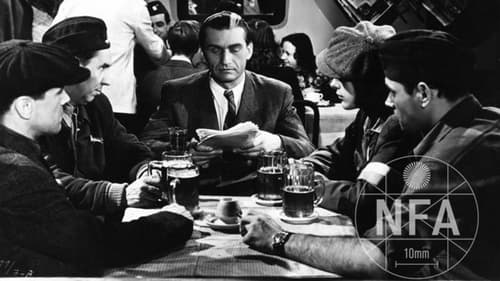

Prague, the beginning of the 17th century. Rozina falls in love with Italian glass worker Nikolo, but after returning home, she gets a message that will never come to Prague. She falls for the promise of an older man to marry her, but when Nikolo does return, the tragic fate of Rozina is sealed.

Standa

Mist on the Moors examines fates of just about a few people. Their stories are outlined in a short space of time and are a symbolic representation of the drama of life, struggle for justice, human cognizance and the healing power of love. One of the most important components of the film is the nature, which ceases to be a mere stage for its plot—it serves almost as an autonomous plot agent. The movie landscape is a precisely defined and localized one. Only the South Bohemian ponds can serve as the right environment for development of such earthy and typically human stories as we encounter in the Mist on the Moors.

Bártík

Karel Novák

Commentary (voice)

Dvořáček
Venice Film Festival 1940

Emil

Morousek

Jeník Kalina

Antonín Bárta

Ondřej

Commentary (voice)
A documentary produced for the Czechoslovak army depicting a military project in which troops moved a Slovak mountain village to make room for a military training camp.
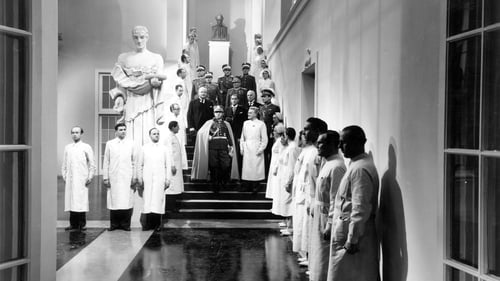
First Assistant
The White Plague, a leprosy-like disease, ravages the world during a war. Based on a play by Karel Čapek.

Josef Forman alias Lionel
One of the few European films of the 30s to criticize the Nazis, even if they couldn't be directly named due to censorship: Gangsters with gray hats stir up trouble in what is obviously the Sudetenland.


















